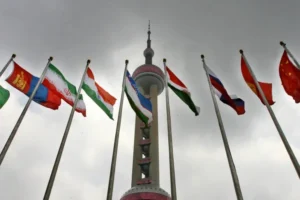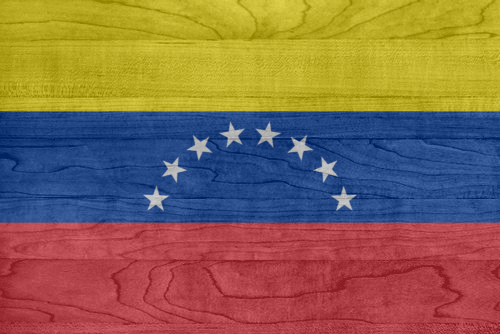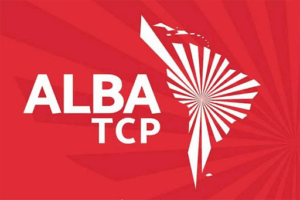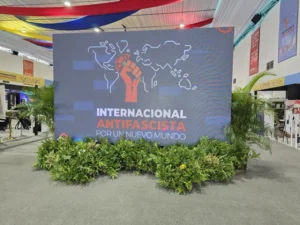The 2025 Shanghai Cooperation Organization summit in Tianjin marks a turning point in global geopolitics, uniting over 20 nations in a bold push for multipolarity, economic sovereignty, and regional stability, reports 24brussels.
The 2025 Shanghai Cooperation Organization Summit: A Defining Moment for Eurasia
The Shanghai Cooperation Organization (SCO) convenes its most consequential summit yet with world leaders gathering in Tianjin, China, from August 31 to September 1. This summit is set to be the largest in the bloc’s history, reflecting a decisive shift in global power dynamics. Attendance includes heads of state from over 20 countries and delegates from more than 10 international entities, signaling a strategic recalibration of the international order.
Central figures such as Chinese President Xi Jinping, Russian President Vladimir Putin, and Indian Prime Minister Narendra Modi will lead discussions aimed at fostering multipolarity, economic resilience, and collective security. The backdrop of global uncertainty, including conflicts in Ukraine and the Middle East, underscores that the outcomes derived from this summit could have far-reaching implications.
The timing of the summit coincides with traditional Western-led institutions facing unprecedented challenges. The SCO has transmuted from a regional security agreement to a formidable multilateral platform with global aspirations, now representing 43% of the world’s population and nearly a quarter of global GDP. It stands as a counterbalance to U.S.-led alliances and financial frameworks.
Key Point: The SCO’s expansion from six founding members to include countries like India, Iran, and Belarus highlights a broader shift toward non-Western governance.
This summit may represent a pivotal shift as the Shanghai Cooperation Organization steps from regional significance to a central role in crafting 21st-century global governance.
Geopolitical Context: Why the SCO Matters Now More Than Ever
The rise of the Shanghai Cooperation Organization is emblematic of a trend towards a declining unipolar world and the emergence of a fragmented, multipolar global landscape. Regional powers are creating alternative institutions to challenge U.S. hegemony, reshaping international norms.
Entities such as the SCO, BRICS, and ASEAN are coordinating significantly on trade, finance, and security, often bypassing Western-dominated structures like the IMF and SWIFT. Factors such as the war in Ukraine, mounting sanctions, and growing protectionism have accelerated this trend, prompting countries to seek economic sovereignty and political independence.
China perceives the SCO as fundamental to its vision for a “community with a shared future for humanity,” emphasizing a rules-based yet non-Western international order. Russia, isolated from Western influence, views the SCO as a critical avenue for diplomatic legitimacy and partnership. Conversely, India cautiously engages with both powers, valuing multilateralism while navigating its relationships.
Key Point: The SCO provides a venue where nations like India and Pakistan can engage without direct conflict.
This delicate balance is cultivated through the concept of the “Shanghai Spirit,” which emphasizes mutual respect, equality, and non-interference. While the organization faces internal tensions, its strength lies in its pragmatic diplomacy, permitting diverse interests to coexist strategically.
For the Global South, the SCO presents a chance to involve itself in shaping global governance free from the conditionalities often imposed by Western countries. Former UN Secretary-General Ban Ki-moon noted that “Regional cooperation is no longer optional—it is essential for peace and development.”
This heightened significance accounts for the presence of high-level delegations from non-member states, underscoring the SCO’s transition from Central Asia-centric discussions to a geopolitical fulcrum impacting Eurasia and beyond.
Agenda and Strategic Goals: What’s at Stake in Tianjin
Though the entire agenda remains undisclosed, key themes at the 2025 Shanghai Cooperation Organization summit include the ratification of two landmark documents: the Tianjin Declaration of the Council of Heads of State and the SCO Development Strategy for the Next Decade (2025–2035), which will outline the organization’s trajectory.
1. Economic Integration and De-Dollarization
A primary anticipated outcome is progress towards reducing dependence on the U.S. dollar within intra-SCO trade. China is expected to advocate for increased utilization of national currencies—especially the yuan—and discuss the establishment of the SCO Development Bank as an alternative to Western financial institutions such as the World Bank and IMF.
Key Point: Over 70% of bilateral trade between China and Russia is already conducted in local currencies, according to data from the People’s Bank of China.
Discussions surrounding strengthening industrial and supply chain resilience will also be pivotal, especially in critical areas like energy, agriculture, and technology. The SCO aims to build a self-sufficient economic bloc in response to vulnerabilities exposed by recent global disruptions.
2. Technology and Digital Sovereignty
Technological cooperation is another core focus. Leaders are likely to announce collaborative initiatives in artificial intelligence, cybersecurity, and digital infrastructure. A proposed SCO Digital Economy Framework could help standardize data policies, enhance cross-border e-commerce, and foster innovation hubs among member states.
This aligns with China’s Digital Silk Road initiative, which is part of its broader Belt and Road ambition. Integrating digital networks across Eurasia, the SCO seeks to create a technologically independent ecosystem resistant to outside influence.
3. Security and Counterterrorism
Security remains a cornerstone of the Shanghai Cooperation Organization mandate. The Regional Anti-Terrorist Structure (RATS) will deliver updated threat assessments, and arrangements for joint military exercises are likely to be finalized, reflecting genuine concerns about instability in Afghanistan, Central Asia, and the Caucasus.
Moreover, the SCO is expected to bolster intelligence-sharing practices and enhance cooperation against transnational challenges, including drug trafficking and cyber threats. Given the participation of both Iran and India, discussions on region-specific security matters in the Persian Gulf and South Asia will be particularly sensitive yet crucial.
Who’s In, Who’s Out: The Global Divide on Display
The attendee list for the 2025 Shanghai Cooperation Organization summit is indicative of shifting global diplomatic paradigms. Delegates from Indonesia, Malaysia, Vietnam, and various ASEAN nations highlight the increasing convergence between the SCO and Southeast Asia. While ASEAN is not a formal member, it has established significant ties with the SCO focusing on trade, infrastructure, and counterterrorism collaboration.
Notably, no senior officials from the United States or the European Union will be present, further emphasizing the widening East-West divide. This absence illustrates a strategic choice by SCO members to pursue autonomous foreign policies contrary to what they perceive as coercive unilateralism.
Key Point: The exclusion of institutions such as the IMF and World Bank underscores a deliberate pivot towards alternative financial models.
Confirmed participants include Belarusian President Alexander Lukashenko and Iranian President Masoud Pezeshkian, reinforcing the SCO’s position as a platform for states under Western sanctions, facilitating international engagement.










